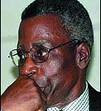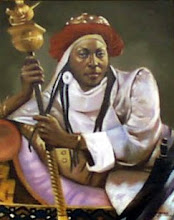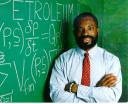With deep curiosity, I’ve wondered what goes on within the mind of a madman. From observation, they appear to be constantly absent-minded. Absent-mindedness also being one of the attributes of a genius means that this is one of the things that a madman and a genius have in common. To be absent-minded means to be lost in thought. I have the knowledge of what a genius thinks when he is lost in thought; but what does a madman think when he is lost in thought?
SIMILARITIES BETWEEN THE GENIUS AND THE MADMAN
1. Both are calm and quiet.
2. Both often wear a straight face; they seldom smile.
3. Both are physically disorganized (not minding about appearance).
4. Both are nonchalant about their surrounding and all; the genius is only concerned about that field in which he has passion.
5. Both madness and genius are most often engendered by some distress. E. B. White said, “Genius is more often found in cracked pot than a whole one.”
The genius employs thinking as a problem solving tool; the madman is not solving any problem; but he thinks. What, then, could be the content of his thought? Could it be that he is thinking up some brilliant ideas but lacks the capacity or the ability to get them out of his head? Perhaps he only entertains some disturbing thoughts. These disturbing or worrisome thoughts could be partly responsible for his physically disorganized nature. But the genius who entertains creative and constructive thoughts is equally physically disorganized.
The sane will call the madman “mad,” the madman will call the sane “mad.” Who exactly is mad; is it the man that walks about the street in tattered clothes or you and I who claim to be sane?
The madman, unlike the genius, may not be able to think constructively since he is devoid of logic, but considering his attributes, I suspect he must have strong capacity for hunches. If this is any thing to go by, then, this is one useful contribution he can make to society.
Psychologists have said that the only difference between a genius and the madman is that the genius has a sense of judgment. This being the difference between the two men, then, we can say that the state of genius and the state of madness are closely related. With the genius being superior to the ordinary man; and the genius and the madman having great resemblance, I am tempted to assert that the madman is equally superior to the ordinary man.
Before you attempt to raise objection to my reasoning, may I quickly ask: sanity is the opposite of insanity, therefore, one has to be good and the other bad; which of the two is good and which is bad? What exactly is sanity and what is insanity? What is the demarcating line between the two?
Psychology aims at finding cure to some personality traits such as isolation, absent-mindedness, soliloquy, attention deficit hyperactivity disorder (ADHD) etc. These traits in the sphere of psychology are known to be “mental disorder.” Why would psychology suppress or remove these traits when it knows very well that these are attributes of a genius? If you suppress or remove the traits, then, the world might just stop producing geniuses.
They say that the genius does not share the same state with the ordinary man (the sane) and he is not necessarily insane; where then does he belong? Perhaps he is somewhere floating between sanity and insanity?
In the University of Benin, virtually every session, a student or more will run mad and be rushed to the psychiatric home. Often times such students are scholars. Frederick Nietzsche went mad towards the end of his life due to excessive intellectual work. I suppose the state of genius is close to the state of madness that is why it is easy for a scholar to drift into the state of madness. There must be an open door between the two states.
Consider the possibility here: If we have a tendency of a scholar drifting into the state of madness, do we not see the tendency of having a madman drifting into the state of genius, at least with our conscious direction?
If the ability of the genius to make a reasonable judgment is the only difference between the two men, that, then, is the demarcating line between the two states. But this demarcating line is a very thin line. The sense of judgment belongs to the genius. To achieve the drift of the madman into the state of genius, perhaps all we need is to help him develop this sense of judgment. Now, whether we will have to cure him to establish the sense of judgment or we have to find a way to bring in the sense of judgment while he is still in the state of madness will be a question we must answer.
Suppose we decide to bring in the sense of judgment while he is still in the state of madness we shall face great obstacle. Though it’s not totally impossible because the madman, depending on his level/extent of madness, is not totally devoid of the sense of judgment. If on the other hand we decide to cure him so as to take advantage of the sense of judgment that has come in now that he has regained his sanity, we will still face some obstacles. This is because, as the doctor will advise, a man who is cured of madness has to avoid psychological and emotional pressure, for that will trigger it again. Therefore, the fear of having him drift back into the state of madness may cripple this experiment.
There may or may not be prove for this but by the sheer nature of a madman, I do believe that he is vulnerable to hunches. If he is, then, that is a plus for this experiment.
For the madman to be in the presence of poise often; for him to be lost in thought and absent-minded often, he should almost certainly be a deep thinker.
Some day we might just find a way to make a genius out of a madman. When that day comes, the same man that has been rejected by society will become the engine that powers the progress of society.
Saturday, May 15, 2010
Subscribe to:
Comments (Atom)










